Reminder Operates With the Key Out, Stops When Driver Door is Closed
Use the following inspection procedure when the reminder continues to
operate with the key out, but stops when the driver's door is closed:
- Inspect for chips or foreign material in the lock cylinder bore.
- Inspect for a sticky lock cylinder actuator tip.
- Inspect for a damaged or broken reminder switch (1).
Reminder Does Not Sound With the Key in Lock Cylinder, Driver Door
Open
Use the following inspection procedure when the reminder does not sound
when the key is fully inserted in the lock cylinder and the driver's
door is open:
- Inspect the reminder in order to determine if power is available.
Refer to Engine Electrical.
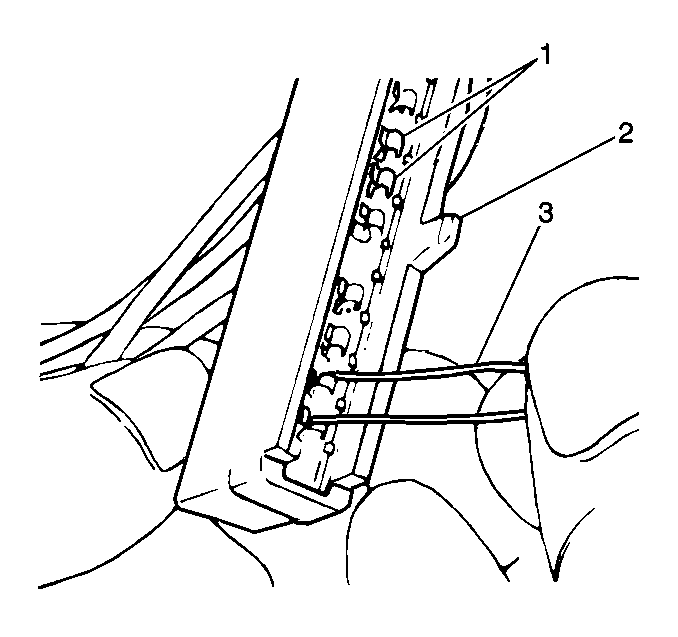
- Use the following steps in order to inspect the
chassis wiring for an open circuit:
| • | Separate the chassis connector (2) from the column connector. |
| • | Connect the female contacts of terminals E and F on the chassis
connector. You may use a bent paper clip as a jumper. |
| • | Repair the chassis wiring if the reminder sounds. |
| • | Continue with this inspection procedure if the reminder does not
sound. |
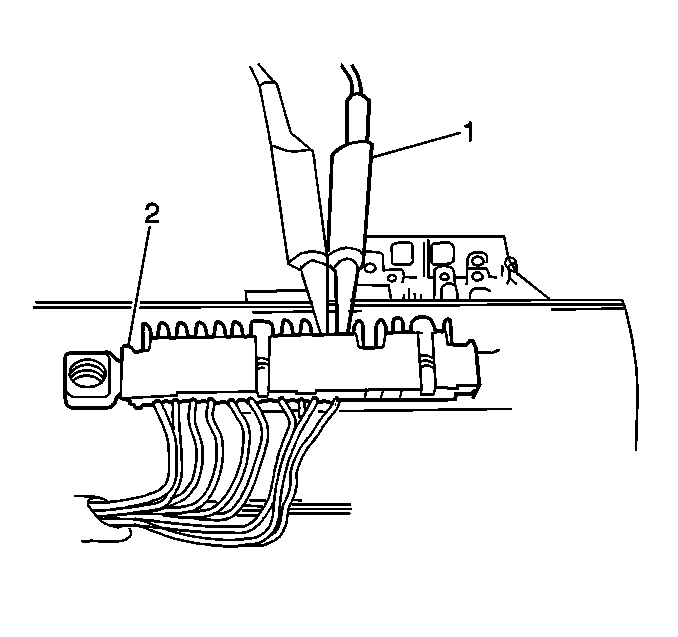
- Use a multimeter (or test light) in order to
inspect the continuity between the male E and F column connector contacts.
- Push the key all of the way into the lock cylinder.
- The function is normal if there is continuity when the key is
in and no continuity when the key is out.
- If there is no continuity, the fault is in the column. Continue
with this inspection procedure.
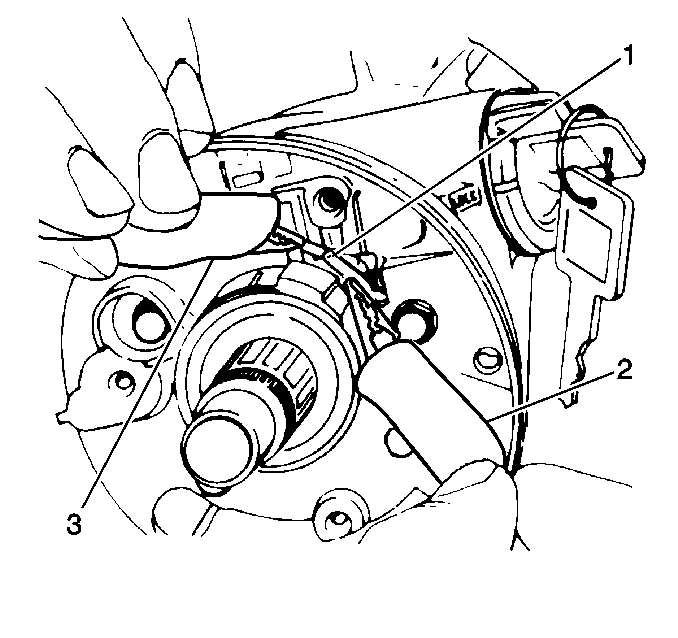
- Use the following steps in order to inspect the
probes of the reminder switch (1). This inspection will ensure that there
is good contact with pads on the signal switch:
| 7.1. | Disassemble the upper end of the column until the turn signal
switch mounting bolts/screws have been removed. |
| 7.2. | Lift the turn signal switch in order to gain access to the probes. |
| 7.3. | Bend the probes, if needed. |
| 7.4. | Replace the turn signal switch. |
| 7.5. | Tighten the three bolts/screws. |
| 7.6. | Use a multimeter (or test light) in order to inspect the continuity
between the male E and F column connector contacts. |
| 7.7. | Push the key all of the way into the lock cylinder. |
| 7.8. | The function is normal if there is continuity when the key is
in and no continuity when the key is out. |
| 7.9. | If there is no continuity, the fault is in the column. Continue
with this inspection procedure. |
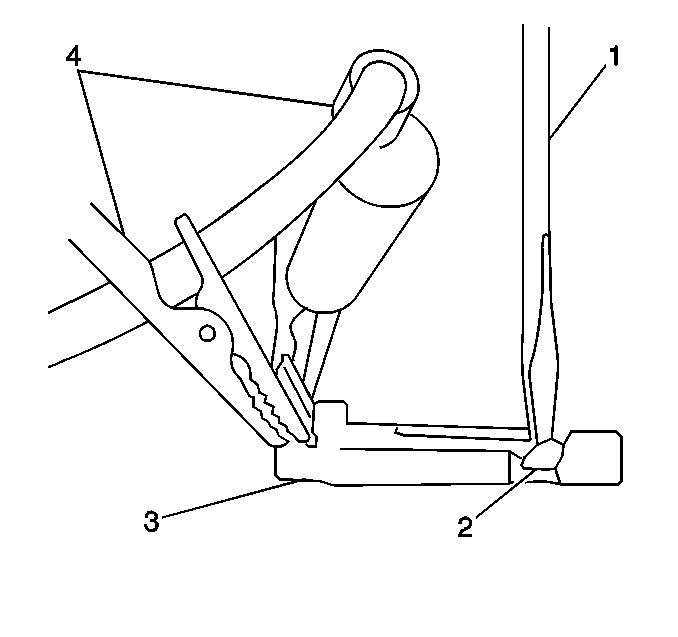
- Use the following steps in order to inspect the
turn signal switch wiring for a short or a fault.
| 8.1. | Connect the male contacts of terminals E and F of the column connector
(2) with a jumper. |
| 8.2. | Use a multimeter in order to inspect the key reminder switch pads
on the turn signal switch. |
| 8.3. | The function is normal if there is continuity. |
| 8.4. | Replace the turn signal switch if there is no continuity. |
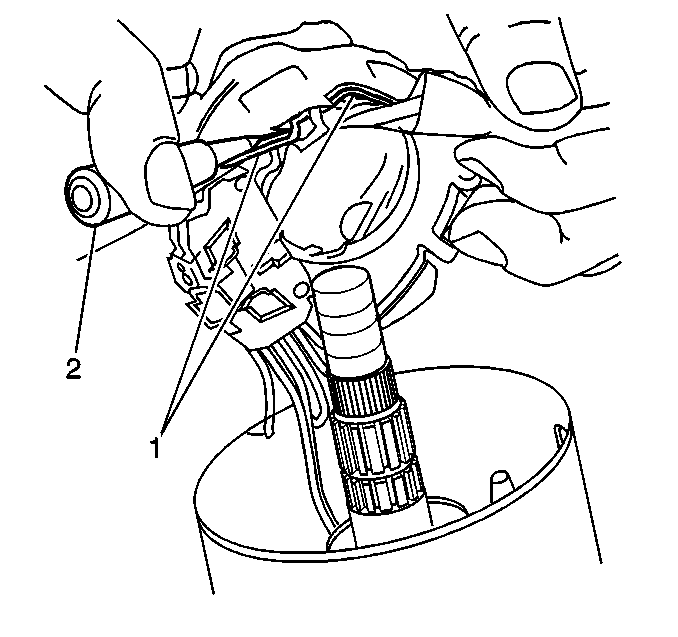
- If you have not found the problem, use the following
steps in order to inspect the continuity of the key reminder switch probes:
| 9.1. | Connect a multimeter to the probes on the reminder switch. |
| 9.2. | Fully insert the key into the lock cylinder (2). |
| 9.3. | Remove the key from the lock cylinder (2). |
| 9.4. | The function is normal when the following conditions exist: |
| • | There is continuity when the key is in the lock. |
| • | There is no continuity when the key is out of the lock. |
| 9.5. | If the function is normal, repeat steps 3 through 9. |
| 9.6. | If there is no continuity, the fault is in the lock cylinder (2)
or the reminder switch. |
- Inspect the lock cylinder (2) for the following obstructions which
may prevent actuator tip function:
- If foreign materials are found, use the following steps in order
to remove the materials:
| 11.1. | Ensure that the key is removed or the lock cylinder is in the
RUN position before you remove the lock cylinder. |
| 11.2. | Remove the chips, burrs or foreign material. |
| 11.3. | Reassembly and reinspect the lock cylinder. |
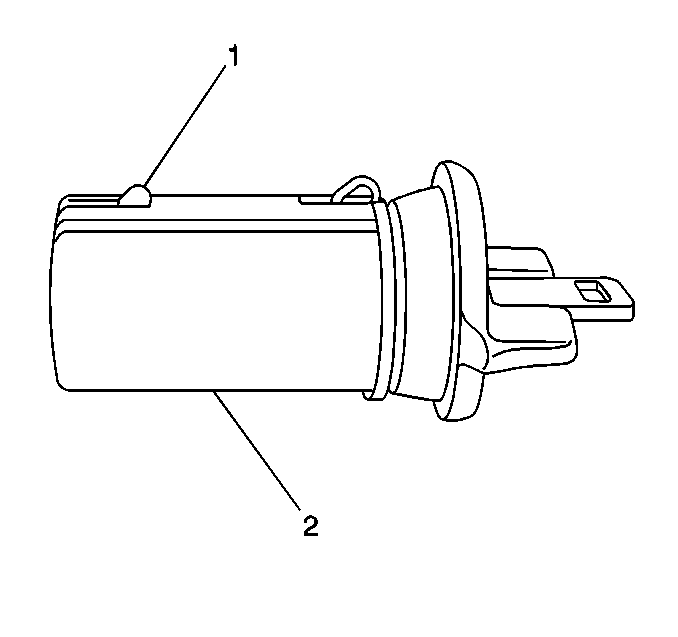
- Use the following procedure
to inspect the lock cylinder for damage:
| 12.1. | Remove the lock cylinder. |
| 12.2. | Push the key all of the way in. |
| 12.3. | Turn the key to the RUN position. |
| 12.5. | Ensure that the lock cylinder actuator tip extends and retracts
smoothly. |
| 12.6. | Ensure that the total extension of the tip is 1.27 mm (0.050 inch). |
| 12.7. | Replace the lock cylinder if it does not meet the above specifications. |
| 12.8. | Reassemble the lock cylinder. |
| 12.9. | Return to Step 4 in order to reinspect the lock cylinder. |
- Use the following steps in order to inspect the reminder switch
if it appears to be good but will not operate:
| 13.1. | Connect the multimeter leads to the reminder switch probes on
the reminder switch. |
| 13.2. | Press on the actuator pad until the switch points touch. |
| 13.3. | Replace the reminder switch if there is no continuity. |
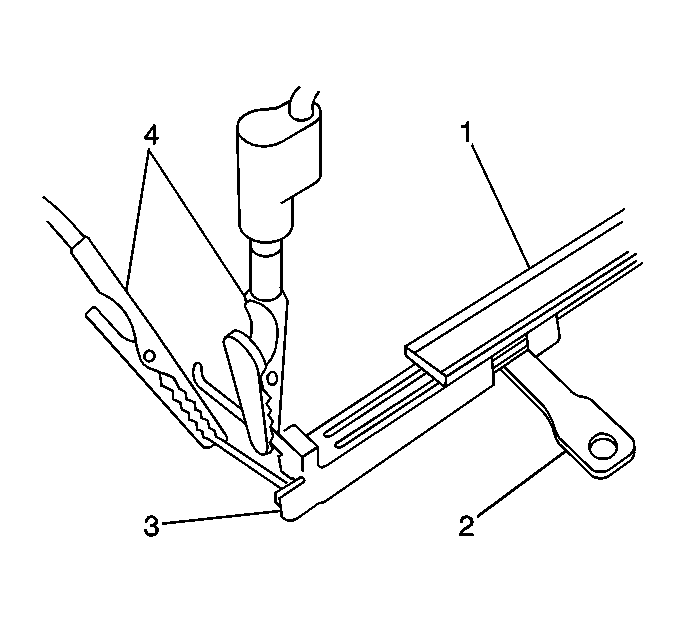
- Use the following steps in order to inspect the
reminder switch contact gap:
| 14.1. | Connect the reminder switch leads (4) to the reminder switch probes
on the reminder switch (3). |
| 14.2. | Press a 0.76 mm (0.030 inch) wire plug gage with
a flat piece of stock onto the actuator pad. |
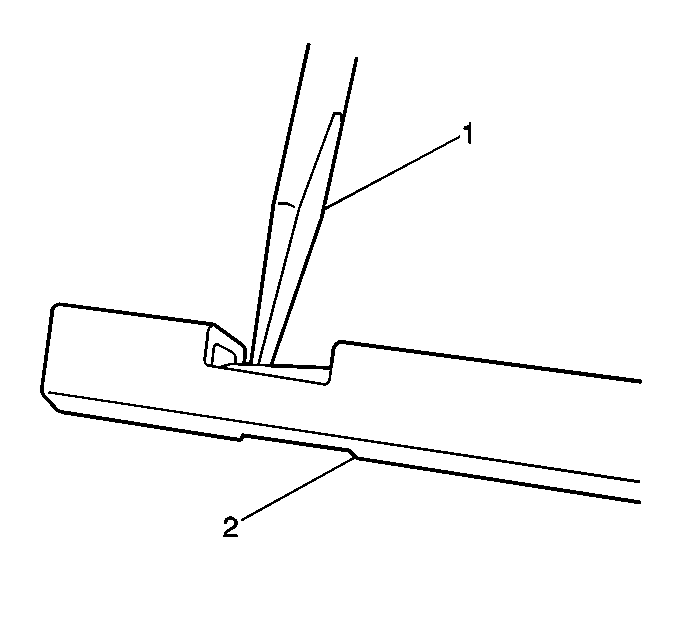
- If contact is not made (continuity), decrease
the switch contact gap until a positive contact is made.
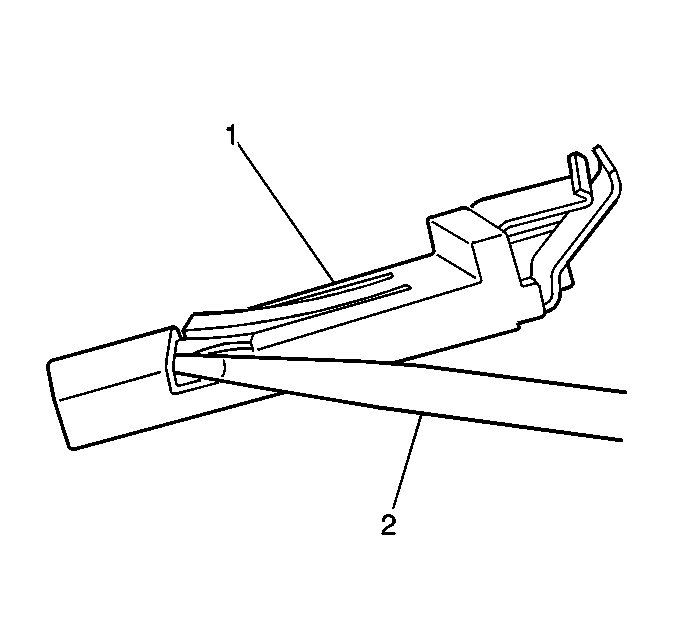
- Use the following procedure in order to inspect
the reminder gap switch. Ensure that the positive contact gap is set at 0.76 mm
(0.030 inch).
| 16.1. | Use a 0.63 mm (0.025 inch) plug gap wire beneath
a flat stock. Increase the switch contact gap if contact is made (continuity). |
| 16.2. | The reminder switch is set properly when the switch contact will
touch 0.76 mm (0.0030 inch) wire but not 0.63 mm (0.025 inch)
wire. |
Determine if the following conditions exist:
| • | The reminder keeps operating with the key in the lock cylinder. |
| • | The driver's door is open or closed. |
| • | The reminder ceases when the key is removed. |
Complete the following steps if the above conditions exist:
- Inspect for a misadjusted or inoperative door jamb switch on the
driver's side.
- Inspect for a shorted wire from the signal switch to the door
jamb switch.
| • | This condition indicates that the lock cylinder or reminder switch
is at fault. |
| • | To verify this, inspect for continuity at the E and F male column connector
contacts with the key removed from the lock cylinder. |
| • | If continuity exists, the fault is in the column. |
| • | Insert a key into the lock. Turn the lock toward the START position.
If the reminder stops when the key is in the RUN position or when it is turned
past the RUN position, toward the START position, the problem is a sticky
lock cylinder actuator. |
- For further diagnosis of the key reminder, refer to Engine Electrical.









